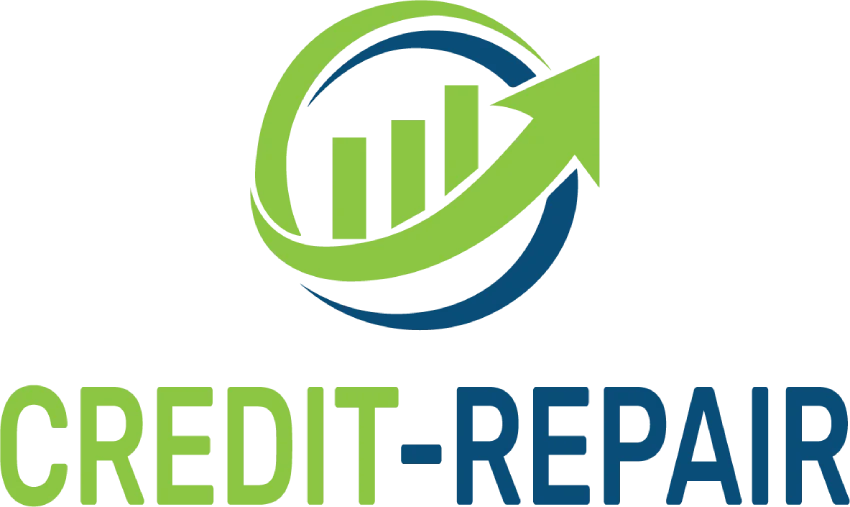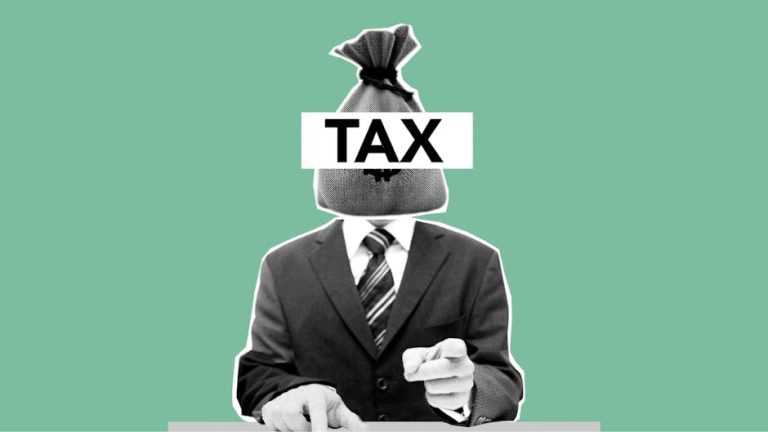Navigating the realm of credit repair can raise questions about its legitimacy and potential scams. “Is credit repair illegal or a scam?” emerges as a common query for individuals seeking financial stability.
It’s essential to clarify that credit repair, when conducted within legal boundaries, is a legitimate process aimed at rectifying inaccuracies on credit reports.
However, the industry does harbor scams, making it crucial for consumers to stay informed and discern between reputable services and fraudulent practices.
Understanding the legal framework and recognizing red flags can empower individuals to make informed decisions when embarking on the journey to improve their credit health.
Is Credit Repair Legal or a Scam?
No, Credit Repair is Not Illegal:
Credit repair, when conducted within the legal framework, stands as a legitimate and essential process.
It revolves around rectifying inaccuracies or outdated information present on credit reports, ultimately aimed at enhancing individuals’ credit scores.
The United States’ Credit Repair Organizations Act (CROA) serves as the regulatory backbone for this industry, ensuring the protection of consumers’ rights through the imposition of legal guidelines.
Cautions Amid Legality:
While credit repair is undeniably legal, exercising caution becomes paramount.
The credit repair landscape has witnessed instances of scams and misleading practices. Some companies entice consumers with unrealistic promises, posing potential risks.
Importantly, individuals retain the right to independently dispute errors on their credit reports – a practice often endorsed by consumer protection agencies as the initial and proactive step.
Unmasking Credit Repair Scams
Legitimate Services:
Genuine credit repair services operate ethically and within the bounds of the law. They adhere to acts such as the CROA, providing transparent services without making unrealistic promises.
These legitimate entities comply with legal requirements, offer educational resources to enhance clients’ understanding of credit reports and scores, and adopt ethical practices in their operations.
A customer-centric approach often characterizes their services, emphasizing personalized solutions and sometimes even one-on-one counseling to address specific credit issues.
Scams in the Industry:
Regrettably, scams exist within the credit repair industry, preying on consumers seeking quick solutions to their credit woes.
Signs of a scam include demands for upfront payments, false assurances of removing legitimate negative information, suggestions of creating a new credit identity, and a failure to inform consumers of their legal rights.
Consumer Rights:
Consumer protection is enshrined in the CROA, affording individuals specific rights such as the entitlement to a written contract, a cooling-off period, and prohibiting credit repair companies from charging fees before completing their services.
Additionally, consumers retain the right to engage in do-it-yourself (DIY) credit repair, a cost-free alternative for disputing inaccuracies.
Research is Key:
Choosing a credit repair company necessitates meticulous research. Individuals should scrutinize reviews, investigate the company’s history of complaints, and ensure compliance with legal requirements.
It is imperative to remain vigilant, recognizing that the industry houses both scams and reputable services genuinely dedicated to improving individuals’ credit health.
In conclusion, understanding the legal framework, discerning between scams and legitimate services, and exercising informed choices are essential steps for individuals navigating the realm of credit repair.
Empowered with knowledge and caution, individuals can take charge of their credit futures responsibly.
Navigating Credit Repair: Legitimacy, Pitfalls, and Best Practices
Credit repair, when conducted within the confines of the law, emerges as a legitimate avenue to rectify inaccuracies on credit reports, fostering an improvement in credit scores.
However, this landscape is not devoid of pitfalls, as numerous scams exploit those seeking swift solutions.
Staying informed, maintaining vigilance, and adopting a realistic mindset are imperative for individuals embarking on the journey of credit repair.
Section 1: Understanding Credit Repair
What is Credit Repair?
Credit repair involves the systematic rectification of inaccuracies on credit reports to enhance an individual’s credit score.
This comprehensive process encompasses tasks such as disputing errors with credit bureaus, negotiating with creditors, and providing guidance on effective credit-building strategies.
Breakdown of the Credit Repair Process:
Reviewing Credit Reports:
The process commences with obtaining and scrutinizing credit reports from major credit bureaus (Experian, Equifax, and TransUnion). The objective is to meticulously examine reports for inaccuracies, outdated information, or errors.
Identifying Errors:
Common errors include incorrect personal details, unauthorized accounts, duplicate entries, outdated negative information, and inaccuracies in account status.
Disputing Errors:
Formal dispute procedures follow the identification of errors. This entails direct communication with credit bureaus or the responsible creditors. Dispute letters, articulating errors and supporting evidence, are often dispatched.
Documentation and Follow-Up:
Proper documentation of all communication is pivotal. Credit bureaus typically have a 30-day window to investigate and respond. Valid disputes lead to corrections or removal of incorrect information.
Monitoring Credit:
Post-dispute resolution, ongoing monitoring of credit reports ensures corrections are implemented, and new inaccuracies are promptly identified.
Improving Credit Practices:
Beyond error rectification, credit repair involves advising individuals on best practices for enhancing and maintaining good credit.
This includes timely payments, judicious management of credit utilization, and avoidance of excessive inquiries.
Credit repair can be a DIY endeavor or involve hiring professional services.
While professionals offer convenience and expertise, selecting reputable providers and staying vigilant against potential scams are crucial considerations in navigating this complex landscape.
Navigating Credit Repair Legality: The Role of CROA
Section 1: The Legal Framework
The Credit Repair Organizations Act (CROA) is a federal law that delineates the permissible actions of credit repair organizations, aiming to shield consumers from deceptive practices. Understanding the key aspects of the CROA is crucial for consumers seeking credit repair services:
Full Disclosure:
Credit repair organizations must furnish consumers with a written contract elucidating the services, total cost, and timeframe for service delivery.
Right to Cancel:
Consumers possess the right to annul the contract within three business days without incurring charges.
Prohibition on Misleading Statements:
The CROA bars credit repair organizations from making false or misleading statements, including guarantees of erasing bad credit or entirely removing accurate negative information.
Payment Structure:
Charging or receiving payment before fulfilling promised services is generally prohibited, preventing consumers from paying for undelivered services.
False Advertising:
Engaging in false advertising related to services is strictly prohibited.
No Alteration of Identities:
Credit repair companies are forbidden from suggesting identity alteration or advising changes to Social Security numbers to conceal adverse credit information.
Disclosure of Consumer Rights:
Organizations must inform consumers of their rights, including the right to dispute credit report inaccuracies at no charge.
The enforcement of the CROA falls under the jurisdiction of the Federal Trade Commission (FTC). It also grants consumers the right to pursue legal action against violators, serving as a crucial safeguard against scams and illegitimate practices in the credit repair industry.
Section 2: Legality of Credit Repair Services
When Is Credit Repair Legal?
Credit repair is legal when adhering to laws like the CROA. Legitimate services focus on identifying and disputing verifiable errors on credit reports while providing genuine credit counseling.
Role of Credit Bureaus
Credit bureaus (Equifax, Experian, and TransUnion) play a pivotal role in the legality of credit repair. Legally bound to investigate disputes and rectify inaccuracies, credit bureaus contribute to the legality of the credit repair process when executed correctly.
In the contemporary financial landscape, credit bureaus serve as linchpins in the credit system, facilitating informed decision-making between borrowers and lenders. Understanding their functions, the nature of the data they handle, and their impact on consumers and lenders is crucial for navigating the complexities of credit repair legality.
Decoding the Functions of Credit Bureaus: Navigating the Financial Landscape
Unveiling Credit Bureaus’ Functions
1. Data Collection:
Credit bureaus are data powerhouses, collecting information from diverse sources like lenders, courts, and public records. This encompasses details on loan payments, credit card usage, mortgages, and even bankruptcies.
2. Credit Reporting:
They weave this data into comprehensive credit reports, offering a detailed history of an individual’s credit usage and repayment behavior.
3. Credit Scoring:
Many credit bureaus go a step further, calculating credit scores based on the information in credit reports. These scores act as numerical indicators of a person’s creditworthiness, pivotal in lending decisions.
4. Fraud Prevention:
Acting as guardians, credit bureaus monitor credit reports for unusual activities, a crucial role in preventing identity theft or fraud.
The Impact on Consumers
1. Access to Credit:
Positive credit reports and high credit scores open doors for consumers, facilitating easier access to credit and securing loans at favorable terms.
2. Interest Rates:
Lenders utilize credit reports to gauge risk. Consumers with stellar credit profiles often enjoy the privilege of lower interest rates.
3. Employment Opportunities:
Certain employers scrutinize credit reports during hiring, especially for roles entailing financial responsibilities.
The Nexus with Lenders
1. Risk Assessment:
Credit reports assist lenders in evaluating the risk associated with lending to a specific individual.
2. Portfolio Management:
Lenders leverage credit information for effective portfolio management, striking a balance between risk and return.
3. Regulatory Compliance:
Credit reports aid lenders in complying with regulations governing fair lending practices.
Unveiling the Sensitive Data Handled
The data processed by credit bureaus is highly sensitive and personal, encompassing:
1. Identifying Information:
Name, address, Social Security number, and date of birth.
2. Credit Accounts:
Comprehensive details of credit accounts, encompassing types, dates opened, credit limits, balances, and payment history.
3. Public Records:
Records of bankruptcies, foreclosures, and court judgments.
4. Inquiries:
A log of entities accessing the credit report.
Navigating Challenges and Controversies
Credit bureaus grapple with diverse challenges and controversies, including:
1. Data Accuracy:
Ensuring accuracy in credit reports is paramount to prevent serious consequences for consumers.
2. Data Security:
Constant vigilance is required to protect sensitive consumer data from breaches.
3. Consumer Disputes:
Handling complex and time-consuming disputes over information in credit reports.
4. Regulatory Compliance:
Credit bureaus must navigate a complex web of regulations governing their operations.
Pondering the Future of Credit Bureaus
The role of credit bureaus is evolving, embracing technological advancements and changing regulatory landscapes:
1. Alternative Data:
Exploring alternative data sources like rent payments and utility bills for a more comprehensive view of creditworthiness.
2. Technology:
Leveraging advances in technology, including machine learning and artificial intelligence, to enhance data analysis and fraud detection.
3. Consumer Empowerment:
Emphasizing consumer empowerment by providing better access to credit information and tools to enhance credit health.
Credit bureaus stand as linchpins in the financial ecosystem, offering indispensable insights for lenders and consumers alike. While challenges persist, their continuous evolution signifies adaptability to technological advancements and shifting consumer needs. Understanding the nuanced role of credit bureaus is fundamental to recognizing their impact on both the financial industry and individual financial well-being.
Unlocking Financial Success: The Crucial Role of Credit Repair Services
Section 3: Unveiling Credit Repair Scams
3.1 Red Flags
Upfront Payment Demands: Credit repair companies are prohibited from demanding payment before rendering services under the CROA.
Guaranteeing a Credit Score Increase: No service can legally guarantee a specific increase in credit scores.
Advising to Create a New Identity: Suggesting the creation of a new credit profile using an Employer Identification Number (EIN) is illegal.
3.2 Common Scam Tactics
Misleading Marketing: Promises of quick fixes and unrealistic outcomes.
Lack of Transparency: Not providing contracts or disclosing legal rights.
Illegal Practices: Encouraging false information on credit applications.
Section 4: Embracing Legitimate Credit Repair Practices
4.1 Do-It-Yourself Credit Repair
Educating oneself about credit reporting and disputing errors independently is often an effective and free method of credit repair.
4.2 Working with Legitimate Companies
Researching and selecting companies that comply with CROA guidelines, provide clear contracts, and have transparent practices is crucial.
Section 5: Nurturing Good Credit Practices
5.1 Healthy Credit Habits
Timely Payments: Consistently paying bills on time.
Credit Utilization: Keeping credit card balances low.
Diverse Credit Types: A mix of credit types can positively impact credit scores.
5.2 Monitoring Credit Reports
Regularly reviewing credit reports for errors and unauthorized activities is essential for maintaining a healthy credit score.
Decoding the Importance of Credit Repair Services
Understanding the Value of a Good Credit Score
Better Loan Terms:
Higher credit scores lead to more favorable loan terms, including lower interest rates.
Housing Opportunities:
Landlords consider credit scores, impacting one’s ability to rent.
Employment Prospects:
Employers review credit histories as part of the hiring process.
Lower Insurance Premiums:
Good credit scores can result in lower premiums on auto or home insurance.
Access to Credit:
A strong credit score opens doors to various forms of credit.
The Prevalence of Credit Issues
Financial Hardships: Job loss, medical emergencies, or unexpected expenses can lead to missed payments and debt accumulation.
Lack of Financial Education: Without proper financial education, individuals may make decisions that negatively impact their credit.
Errors on Credit Reports: Inaccuracies on credit reports are not uncommon and can unjustly damage credit scores.
Identity Theft: Fraudulent activities can result in credit score declines, leaving victims to deal with the repercussions.
The Role of Credit Repair Services
Credit repair services are designed to help individuals improve their credit scores by:
Identifying and Disputing Errors:
Scrutinizing credit reports to identify and dispute inaccuracies or fraudulent entries.
Offering Customized Advice:
Providing personalized advice on improving credit scores, tailored to individual circumstances.
Navigating Complex Systems:
Helping clients navigate the complexity of credit systems with ease.
Monitoring Credit:
Offering ongoing monitoring, alerting clients to changes or potential issues on their credit reports.
Financial Empowerment through Credit Repair
Credit repair services empower individuals financially by:
Improving Loan Eligibility:
As credit scores improve, individuals become eligible for various loans, which may have been previously out of reach.
Boosting Financial Confidence:
With an improved credit score, individuals often feel more confident in their financial abilities and decision-making.
Encouraging Financial Education:
Through the credit repair process, individuals gain valuable knowledge about credit management and financial planning.
The Psychological Impact of Credit Repair
Beyond financial benefits, credit repair can have a significant psychological impact:
Reducing Stress:
Financial difficulties and poor credit can be major sources of stress; improving one’s credit situation can alleviate this.
Enhancing Self-Esteem:
Achieving financial milestones through credit repair can boost self-esteem and a sense of accomplishment.
Fostering Hope:
The journey of credit repair often instills hope and optimism about future financial prospects.
In today’s financial environment, credit repair services play a pivotal role. They offer more than just credit score improvement; they provide a pathway to financial opportunities, empowerment, and overall well-being. By addressing credit issues, educating clients, and advocating for fair credit practices, these services contribute significantly to fostering financial stability and confidence. While the journey of credit repair requires time, effort, and personal responsibility, the positive impacts are far-reaching, influencing not just individual lives but the broader economic landscape.
Table of Contents
Get Your Credit Repaired With credit-repair.com
Google Review:
or
WHY CHOOSE US
We also would counsel you on real, legal, and ethical credit repair for clients rebuilding their life and credit ratings after hardship. Achieving financial freedom is the ultimate dream allowing you to live the life you want to enjoy. Get the help of a professional credit repair company by contacting us.
Our credit restoration services are tailored to your unique situation, and we never make you pay for anything you don’t need. When you sign up for either our Essentials or Essentials Plus packages, you can rest assured that you’ll be receiving the bare minimum of care necessary for your specific situation. You can opt for additional customization options to further tailor our offerings to your specifications. In this manner, you won’t overpay for perks you don’t use. This is the essence of adaptability.








